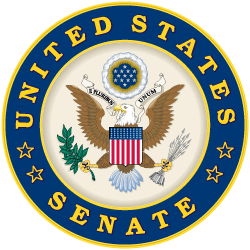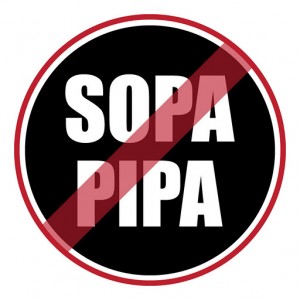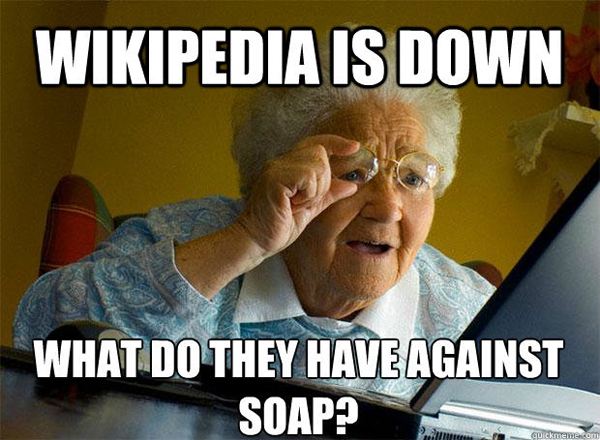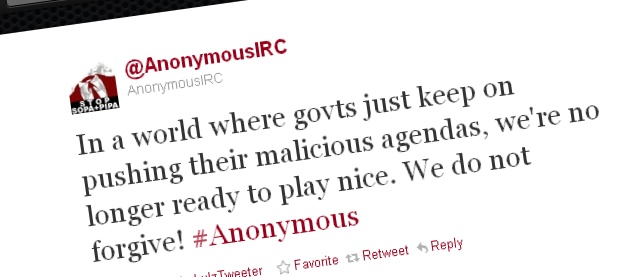Cyber War: Demo-critic America..Here I Come!

By Nour Rida
The United States of America has proved again being a demo-critic of democracy. This time only, it seems to have opened the doors of mayhem against it in the world wild net .

The US government has frustrated a group of activists by approaching their cyber world freedom through, first, the SOPA (stop online piracy act), PIPA (PROTECT Internet Privacy Act), and second, a nationwide sweep of arrests against activists who either took part in an online protest against the bills or retaliated by hacking US governmental websites.
The hacktivists declared they are fed up with the US government's exploitation of even the virtual world for its own interests.
SOPA and PIPA
The Stop Online Piracy Act and Protect Intellectual Property Act give copyright holders strong influence to call for sites they allegedly say promote piracy to be shut down.
 If they're successful in securing court orders against websites accused of copyright infringement, the proposed laws would force US-based Internet service providers, search engines, payment and advertising companies to stop accessing, linking or doing business with those sites.
If they're successful in securing court orders against websites accused of copyright infringement, the proposed laws would force US-based Internet service providers, search engines, payment and advertising companies to stop accessing, linking or doing business with those sites.
The laws have attracted controversy as they give too much leeway to authorities and copyright holders to attack sites they don't like, even outside of the intended use of the legislation to combat piracy.
SOPA got on the ropes after protest from technology companies such as Google and Mozilla. Supporters such as hosting company ‘GoDaddy' have been forced to change their stance after customers deserted in droves in protest. And the White House soon criticized the bill, saying the law must "guard against the risk of online censorship of lawful activity and must not inhibit innovation by its dynamic businesses, large and small.
 SOPA further provides what it calls a "Market-Based System to allegedly Protect US Property". This "market-based system" is a private mechanism by which an IP holder can pressure payment network providers and internet advertising services to cease all transactions with "sites dedicated to alleged theft of US property".
SOPA further provides what it calls a "Market-Based System to allegedly Protect US Property". This "market-based system" is a private mechanism by which an IP holder can pressure payment network providers and internet advertising services to cease all transactions with "sites dedicated to alleged theft of US property".
In other words, SOPA, introduced by the House of Representatives, plans on barring advertising networks and payment facilities from conducting business with allegedly infringing websites and barring websites from linking to the sites.
SOPA would also require Internet service providers to block access to certain sites.
"
24-Hour Online Strike
Companies such as Wikipedia, Google, and Facebook went on a 24-hour strike by blacking out parts of their websites on Wednesday. The film and music industries, as well as news organizations have expressed support for the legislation, saying billions of their dollars are being stolen.
Internet companies oppose the laws. They argue that the laws would only increase governmental censorship power, turning the company owners, bloggers, artists, and journalists into police and banning freedom of speech.
Only one day after the widely publicized Web protest of SOPA and PIPA, the US Justice Department arrested several operators and company executives of popular file-sharing company MegaUpload.

Megaupload allows surfers upload any file and then share it with a direct link to download the file. Nothing wrong with that, but US claim Megaupload paid users uploading copyrighted content and publicized other sites that linked to the pirated material.
MegaUpload founder Kim Dotcom, also known as Kim Schwartz, chief marketing officer Finn Batato, CTO and co-founder Mathias Ortmann, and Bram van der Kolk were arrested in Auckland, New Zealand.
According to press reports, they were indicted on counts of copyright infringement, conspiracy to commit copyright infringement, conspiracy to money laundering, and conspiracy to racketeering. If found guilty and given maximum sentences, each could face over 20 years in prison.
Moreover, several reports have already questioned whether the timing illustrates that the US government, in fact, questioning if it needs to pass SOPA/PIPA to crack down on copyright infringers, as the reports said that an FBI investigation of MegaUpload and Kim Dotcom reportedly had been ongoing for the past two years.
Anonymous" Hacks US, NATO Data
The hacker group "Anonymous" exposed thousands of email addresses and passwords belonging to US and NATO officials that it obtained in a security breach.
The online hacktivist group claimed it had stolen intelligence analysis firm Stratfor's confidential client list, which included the US War Department, Army, Air Force, law enforcement agencies, top security contractors and technology firms like Apple and Microsoft, over Christmas, reported Press TV.

Among the huge trove of private information exposed by the group are email addresses/personal information belonging to 221 British military officials, 242 NATO staff and 19-thousand US military personnel.
The personal data belonging to former US vice-president Dan Quayle and former secretary of state Henry Kissinger were also released.
Some 75,000 paying Stratfor subscribers, including 462 UK accounts, also had their credit card numbers and addresses exposed.
Stratfor offers expert analysis of international affairs, including security issues, and attracts subscribers from sensitive government departments.
The hackers said they managed to obtain the information easily because the security firm did not protect the data, which could prove a major source of embarrassment to the global intelligence firm.
In July 2011, Hacking group Anonymous bragged that they had 'breached' Nato's security and published two classified documents to prove their claims.
It added: ‘We are sitting on about one gigabyte of data from Nato now, most of which we cannot publish as it would be irresponsible.'

'And we will continue to fight them, with all methods we have at our disposal, and that certainly includes breaking into their websites and exposing their lies.'
The hacking group is a loosely organized group of hackers sympathetic to WikiLeaks. Along with its splinter group LulzSec, It has claimed responsibility for attacks against corporate and government websites worldwide.
In response to the hacktivists activity, sixteen suspected members of "Anonymous" were arrested Friday morning in states across the US, from California to New York, in a federal raid on the notorious hacking group.
Bill Killed?
Following several sessions of discussion at the US House of Senates, the Senate has indefinitely postponed next week's vote on controversial anti-piracy bills after major Internet companies altered their portals in online protest against the measures, sources report. Yet, Sen. Harry Reid during at the Senate said he would bring the bill to cloture on the 24th of January.
This week was wrapped up with a series of high-profile hacks versus arrests, and the bill goes on hold in face of tremendous voices of objection.
Comments




